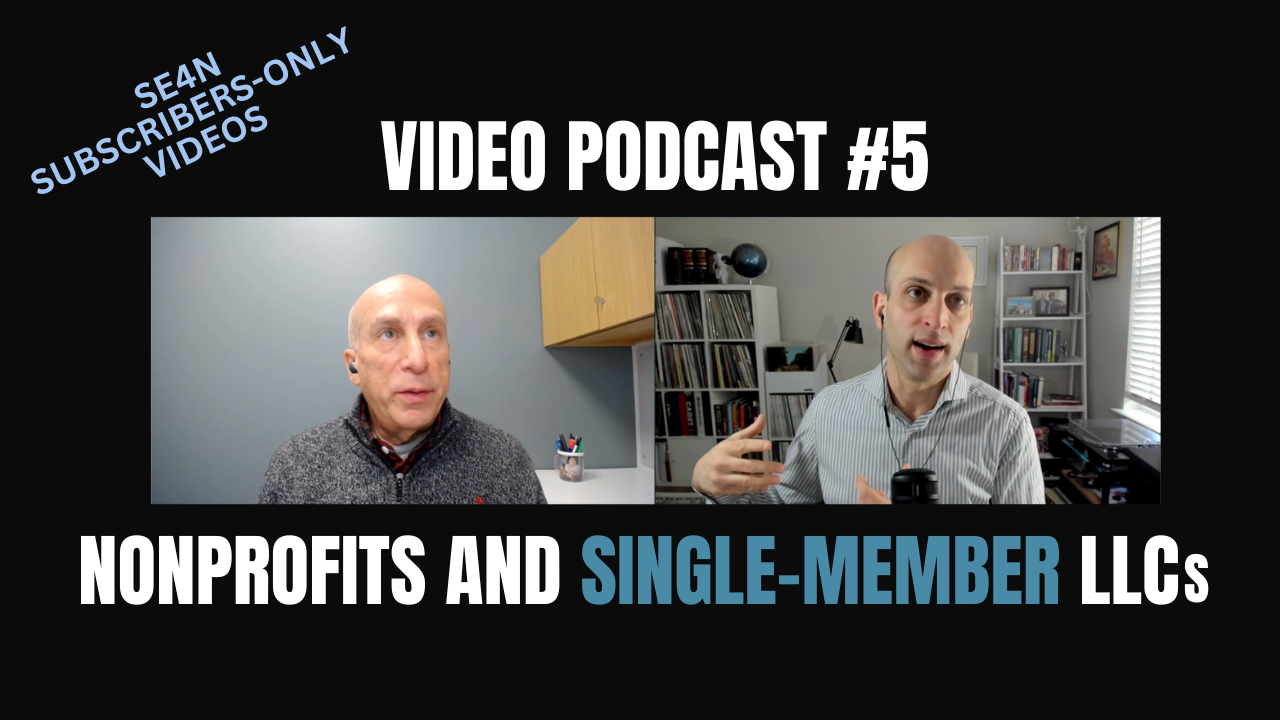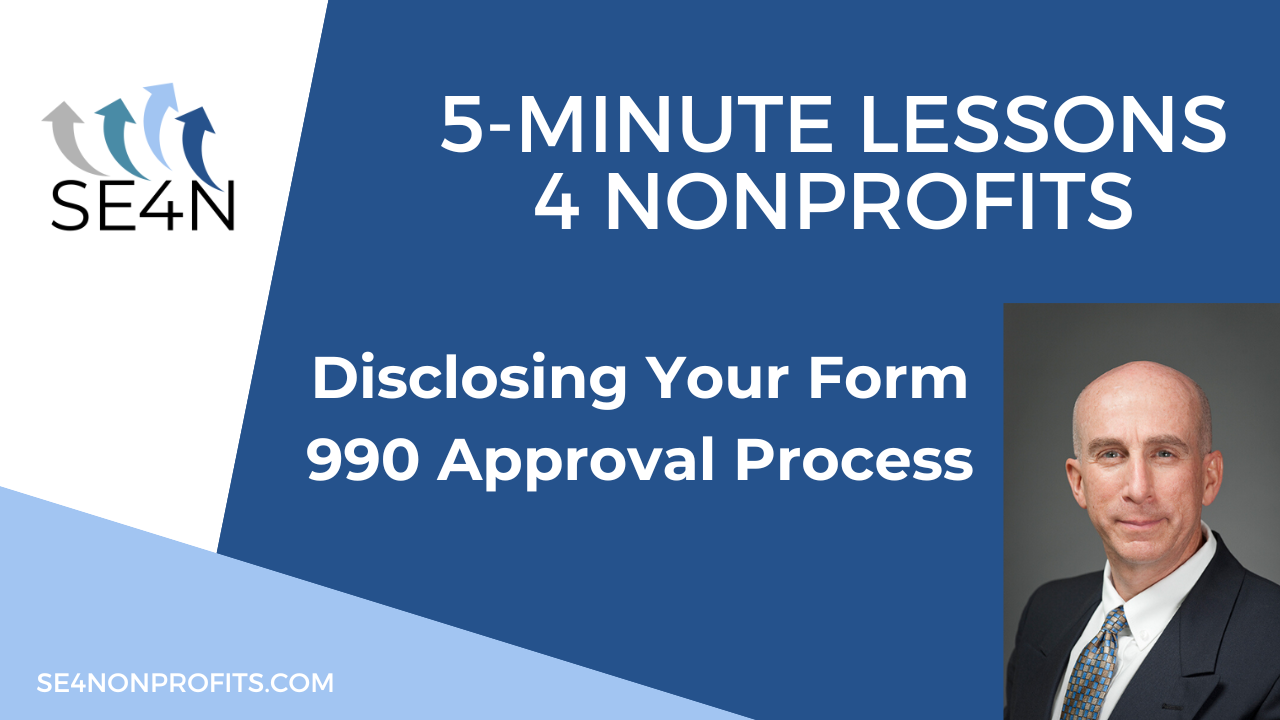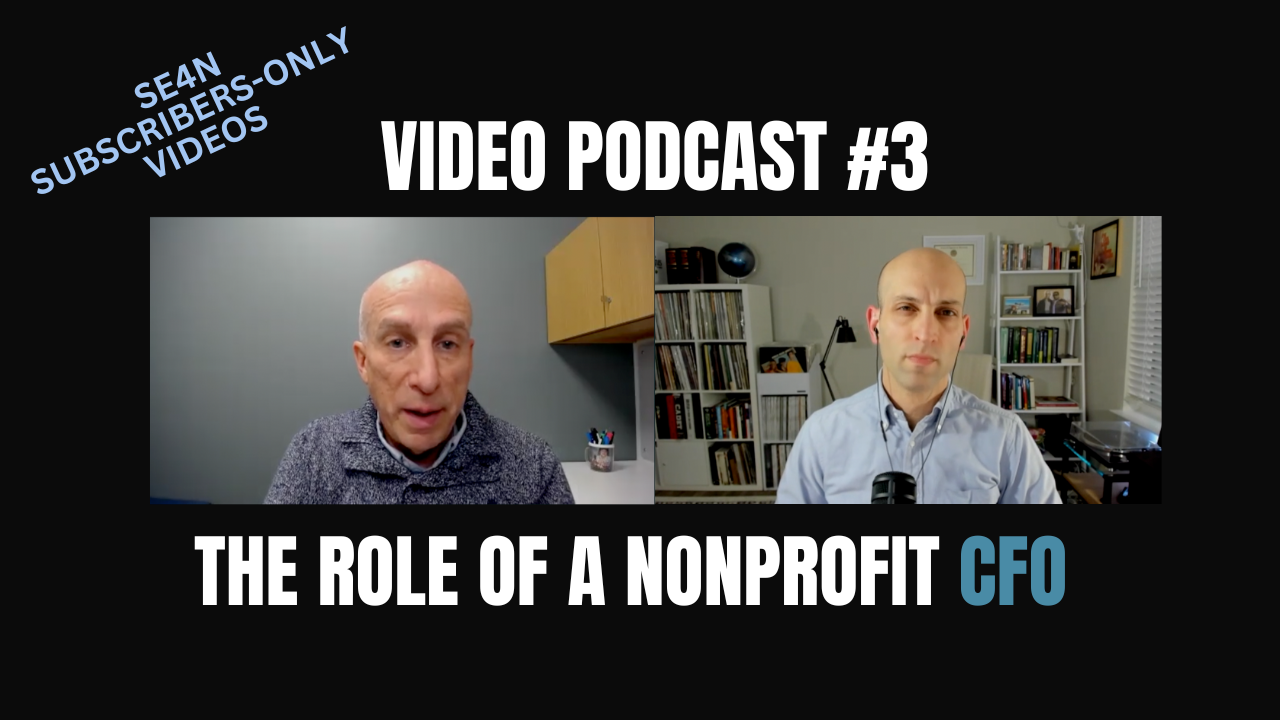
Blog.
Most Recent Posts

Capital Budgets Play an Important Role in Nonprofit Planning and Budgeting
Annual operating budgets for nonprofit organizations will always hold center stage, drawing the attention of senior management, Board, and staff. However, this focus can often lead organizations to neglect longer-term sustainability, capacity, and cash flow planning issues. This is why capital budgets have an important role, serving as a synergistic complement to annual operating budgets that will help current and future planning.
![TEMPLATE: Basic Capital Budget Spreadsheet [SUBSCRIBERS-ONLY]](https://images.squarespace-cdn.com/content/v1/5e6ccadfb4659c1d51df14d5/43015284-66cf-477c-b331-ddc6275f41e0/laptops-7917663_1920.jpg)
TEMPLATE: Basic Capital Budget Spreadsheet [SUBSCRIBERS-ONLY]
Capital budgets are an important planning tool, helping nonprofit organizations to avoid problems from capital assets being used past their useful life, address future capacity challenges, and improve long-term cash flow planning. This basic capital budget spreadsheet template will help organizations to start tracking the acquisition and maintenance of their “capital assets,” i.e., material (larger dollar) assets that are expected to have a useful life of more than one year, such as computers, office furniture and equipment, leasehold improvements, and vehicles.
![Video Q&A for Subscribers: May 2024 [SUBSCRIBERS-ONLY]](https://images.squarespace-cdn.com/content/v1/5e6ccadfb4659c1d51df14d5/48a8fcb5-ca8a-44f0-98f1-93b2ca0d1081/SE4N+Video+Q%26A+2024-05.png)
Video Q&A for Subscribers: May 2024 [SUBSCRIBERS-ONLY]
Ben and Mike answer questions from subscribers about Board liability exposure, deciding whether a new organization should have a broad or narrow focus, how receiving more than $50,000 in revenue impacts an organization’s Form 1023-EZ, and when nonprofits should think about changing audit firms.

VIDEO PODCAST: Using a Single-Member LLC as a Nonprofit Subsidiary
Ben and Mike discuss tax, legal, and strategic considerations related to the use of single member limited liability companies (LLCs) by nonprofit organizations, including how and why nonprofits use this type of subsidiary structure, tips for drafting the Articles of Organization and Operating Agreement, and other issues such as charitable solicitation registrations and donor acknowledgment letters.

VIDEO: Disclosing Your Form 990 Approval Process | 5-Minute Lessons 4 Nonprofits
SE4N's A. Michael Gellman provides a short lesson on how to approach answering the questions about your nonprofit organization’s Form 990 review and approval process on Lines 11a and 11b on page 6 of the Form 990, Part VI, Section B, including a discussion of some of the various ways to distribute the final draft of the Form 990 to the Board before filing, which Schedule O disclosures are needed, and the importance of setting procedures and providing a clear timeline to the Board.

Integrating Financial Health Assessments into Your Organization’s Planning Process
The markers for tracking and assessing a nonprofit organization’s financial health are not a mystery. The key elements of financial health (operating reserves, funding, and operational expenses) are generally easy to identify and understand. You just need a willingness to keep your eyes open and a commitment to pause and make an honest assessment of a financial picture that has most likely been changing.
![WORKSHEET: Financial Health Assessment and Implementation Framework [SUBSCRIBERS-ONLY]](https://images.squarespace-cdn.com/content/v1/5e6ccadfb4659c1d51df14d5/48a2d35c-486b-46e5-94fa-d782fda3de9f/isaac-smith-CbXmEkOrzSg-unsplash.jpg)
WORKSHEET: Financial Health Assessment and Implementation Framework [SUBSCRIBERS-ONLY]
The purpose of this Financial Health Assessment and Implement Framework worksheet is to help you to step back and assess your organization’s recent financial position and set the stage for planning the next two years. This worksheet will help you to look back at recent history while looking forward to create a path to improve your organization’s financial health and enhancing sustainability.

Q&A #162 – Can nonprofit volunteers deduct the value of their services as a charitable contribution?
The value of a volunteer’s time for in-kind services donated to a nonprofit organization is not tax deductible, and an organization should never state the dollar value of a volunteer’s services in an acknowledgment letter. However, it may be appropriate to provide volunteers with an acknowledgment letter that generally describes the services they provided so that volunteers can deduct certain eligible unreimbursed expenses.

VIDEO PODCAST: Improving your Form 990 Review Process
Mike and Ben discuss the process of reviewing and approving drafts of Form 990, the steps nonprofit organizations can take to improve their Form 990 review and approval process, the importance of getting input from both financial and non-financial perspectives, how to approach the questions on page 6, Part VI, Lines 11a and 11b of the Form 990, and more.
![Watching Over Pledges Receivable During Periods of Change and Uncertainty [SUBSCRIBERS-ONLY]](https://images.squarespace-cdn.com/content/v1/5e6ccadfb4659c1d51df14d5/1709998726211-M7RPVKBN39H47RUV4BBW/pexels-cottonbro-studio-5909800.jpg)
Watching Over Pledges Receivable During Periods of Change and Uncertainty [SUBSCRIBERS-ONLY]
Pledges receivable are a vital asset on a nonprofit organization’s balance sheet. However, this asset is highly sensitive to changing economic conditions and donor sentiment. Understanding how past management actions have impacted pledges receivable, and learning to adopt new management tactics, is vital to protecting current pledges receivable and attracting new pledges.
![TEMPLATE: Current Operating and Intermediate Funds Cash Management Guidelines [SUBSCRIBERS-ONLY]](https://images.squarespace-cdn.com/content/v1/5e6ccadfb4659c1d51df14d5/dc57af28-1bb6-4ba4-96ab-72152463dfad/money-2724245_1920.jpg)
TEMPLATE: Current Operating and Intermediate Funds Cash Management Guidelines [SUBSCRIBERS-ONLY]
This Cash Management Guidelines template is designed to help your organization set targets the management of both current operating funds and intermediate funds, establish investment guidelines consist with your organization’s cash management needs.
![The Importance of Keeping Records of Board and Officer Terms [SUBSCRIBERS-ONLY]](https://images.squarespace-cdn.com/content/v1/5e6ccadfb4659c1d51df14d5/1708259752668-UV427L34TF605LFDNOJV/folder-626334_1920.jpg)
The Importance of Keeping Records of Board and Officer Terms [SUBSCRIBERS-ONLY]
Corporate recordkeeping is an area where nonprofit organizations often fall short of best practices. One common pitfall is the failure to maintain a list of the current Board member and Officer terms of office with precise start and end dates. This oversight seems small but can have very significant consequences, especially when an internal dispute arises.

VIDEO PODCAST: The Role of a Nonprofit CFO
Mike and Ben discuss the importance of CFOs taking on a broader role in order for nonprofit organizations to thrive and reach their fullest potential as well as the challenge of balancing their traditional finance duties with their role as a strategic thought leader within the organization. Additionally, Mike and Ben discuss tactics for navigating this balance through improving the integration of the CFO within the C-Suite, more effective financial messaging and communications, and having more strategic financial discussions.

Why Gift Acceptance Policies are Important and Must Be Periodically Reviewed and Updated
A gift acceptance policy fills many important roles for a nonprofit organization, including acting as a set of guidelines for fundraising efforts, a tool for risk management, and a protector of the organization’s good governance practices, mission, ethics, reputation, and culture. These characteristics are naturally sensitive to unexpected change and evolving economic conditions, so regularly reviewing and updating your organization’s gift acceptance policy is essential.
![TEMPLATE: Donor Acknowledgement Letters [SUBSCRIBERS-ONLY]](https://images.squarespace-cdn.com/content/v1/5e6ccadfb4659c1d51df14d5/f328f5a7-6c2b-4973-a39b-d3f8e02bb557/mediamodifier-S3Lig53867M-unsplash.jpg)
TEMPLATE: Donor Acknowledgement Letters [SUBSCRIBERS-ONLY]
These donor acknowledgment letter templates provides sample language that generally satisfies basic IRS requirements for the most common donation scenarios, including cash contributions, non-cash contributions, as well as cash and non-cash gifts that are treated as quid pro quo contributions.